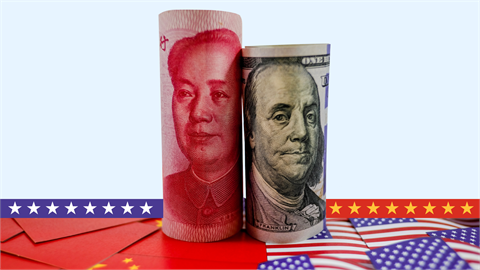Just days ago, the world woke up to one of the most aggressive escalations in trade policy in over a century. U.S. President Donald Trump stunned markets by imposing the steepest tariffs since the 1930s, igniting a trade war with sweeping implications. Aimed primarily at curbing what the administration calls “unfair trading practices,” the tariffs target a vast array of imports from China and other key trade partners. Beijing responded swiftly, announcing a mirror-image barrage of tariffs on U.S. goods, triggering the most significant rupture in global trade relations in decades.
The result? Chaos in financial markets, whiplash volatility across sectors, and a deepening sense of uncertainty about the future of globalisation itself. U.S. and European markets were rocked by the announcement on April 2. Equities plunged on the initial news, with major indices shedding trillions in value in just 48 hours. Fear of a full-blown trade war sparked a massive selloff, especially in sectors most exposed to international supply chains—technology, manufacturing, and consumer goods bore the brunt.
Then came the whiplash. Mid-week, President Trump abruptly announced a 90-day pause on some of the reciprocal tariffs, a move widely seen as an attempt to calm panicked investors. Markets reacted instantly. Stocks soared in one of the strongest single-day rallies of the year, as investors bet on a possible diplomatic off-ramp.
Still, few are under any illusions. The temporary reprieve does little to reverse the structural damage already underway in global trade relationships. The sheer scale and unpredictability of tariff decisions have cast a long shadow over investor confidence and economic planning.
The question many are now asking: Is globalisation unraveling? It’s a fair concern. What began as isolated disputes over steel and solar panels has evolved into a broader rejection of multilateral trade norms. The very architecture that has supported decades of global economic integration—WTO frameworks, free trade agreements, and open capital flows—is being challenged in real time.
And it’s not just Washington and Beijing in the spotlight. The European Union, itself facing internal economic pressures, has responded with threats of its own counter-tariffs. Calls for reshoring and self-sufficiency are growing louder across the developed world. The narrative has shifted: from efficiency and scale to resilience and national interest. In this new world of economic nationalism, supply chains are no longer merely logistical systems—they are geopolitical fault lines.
Energy Markets: Caught in the Crossfire
Amid the trade turbulence, energy markets have been far from immune. Crude oil prices plunged earlier in the week, with Brent falling below $64 and WTI briefly dipping under $61, as traders feared that a slowdown in global trade would undercut fuel demand. China’s retaliation raised concerns that U.S. LNG exports could face hurdles, pushing North Asian spot LNG prices to near 12-month lows.
At the same time, OPEC’s recent decision to increase output by more than originally planned has only added to market uncertainty. Saudi Arabia’s move to slash its crude export prices to Asia signals a potential price war in an already jittery environment. The combination of uncertain demand and rising supply could tilt the balance into surplus, pressuring prices further.
Meanwhile, in Europe, gas prices saw wild swings. Futures tumbled early in the week on economic concerns but rebounded strongly following Trump’s tariff pause. The continent, still recovering from a tough winter and navigating its restocking season, remains vulnerable to any disruptions in LNG flows. With U.S. cargoes possibly rerouting from China to Europe, the market faces both opportunity and risk.
For now, the world watches and waits. Diplomats scramble behind the scenes to prevent further escalation. Traders scan headlines, ready to react to every tweet and policy pivot. But one thing is clear: the global economy is entering a new phase—more fragmented, more volatile, and more exposed to political risk than it has been in years.
In the energy sector, where long-term investment horizons and international coordination are key, the consequences could be profound. From LNG deals to upstream financing, uncertainty is the new normal. As geopolitics and energy continue to collide, the coming weeks could set the tone for much more than just trade. They could mark the start of a new global order.
(Editotial, from IENE's Energy Weekly Report of April 11,2025)




